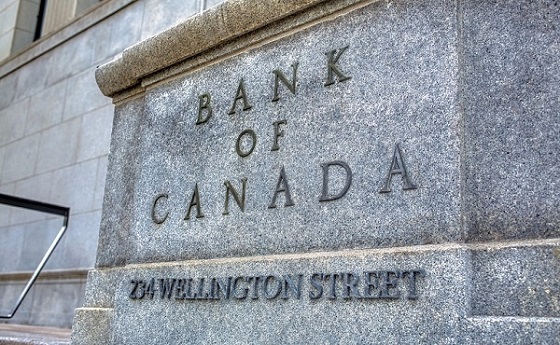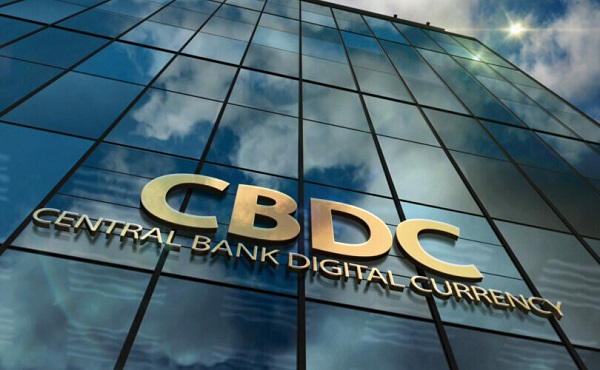CBDC Central Bank Digital Currency
WEF report: Digital ID has become a standard feature for everyday life in Pakistan

From LifeSiteNews
A WEF report, co-authored by the U.N. and World Bank, states that digital public infrastructure ‘is transforming lives in Pakistan,’ ushering in a need for digital ID such that adults in Pakistan cannot lead normal lives without it.
Digital identity sits at the heart of Pakistan’s Digital Public Infrastructure (DPI) transformation and is now a standard feature in every adult’s life, according to the WEF Agenda.
Published on the World Economic Forum (WEF) Agenda blog and co-written by representatives from the World Bank and the United Nations’ Better Than Cash Alliance, the story “Digital public infrastructure is transforming lives in Pakistan. Here’s how” highlights how adults in Pakistan cannot lead a normal life without having a digital identity, which is a key component of DPI.
1/6
🌟 Exciting Update! 🌟 We are thrilled to introduce Pakistan’s first locally assembled digital identity kit, a result of the collaborative efforts between NADRA Technologies Limited (NTL) and the National Radio and Telecommunication Corporation (NRTC). pic.twitter.com/gUsUdBVnWm— NADRA (@NadraPak) May 17, 2024
“At the heart of Pakistan’s digital transformation is the National Database and Registration Authority (NADRA), established to overhaul the country’s identity systems,” the authors write, adding:
This was a foundational change, positioning Pakistan among a select group of nations equipped to manage comprehensive digital identities for over 240 million citizens.
The NADRA-issued Computerized National Identity Card (CNIC) is now a standard feature in every adult Pakistani’s life, facilitating a range of routine tasks such as opening bank accounts, purchasing airline tickets, acquiring driver’s licenses, and qualifying for social protection, thereby ensuring seamless identity authentication for every citizen.

Digital Public Infrastructure is a civic technology stack consisting of three components:
- Digital Identity,
- Fast Digital Payment Systems (e.g. programmable Central Bank Digital Currencies [CBDCs]),
- Data Exchanges Between Public and Private Entities.
Now, “Pakistan is set to launch several ambitious DPI initiatives, including expanding the RAAST payment system, implementing a nationwide digital health records system, and launching a blockchain-based land registry,” according to the WEF Agenda.
From the State Bank of Pakistan, RAAST is the country’s first instant payment system that enables end-to-end digital payments among individuals, businesses, and government entities instantaneously.
In 2020 the State Bank of Pakistan partnered with non-profit Karandaaz, which is a “prime delivery partner of the Bill and Melinda Gates Foundation.”
In 2021 the Bill and Melinda Gates Foundation granted Karandaaz $4 million “to integrate the Ehsaas Program (biggest Government to Person Program in Pakistan) with RAAST-Pakistan’s Instant Payment System to enable interoperability and choice for the beneficiaries.”
Contributing to the WEF blog post are the World Bank’s technical advisor for Digital Public Infrastructure and Digital ID Tariq Malik, along with the U.N.-based Better Than Cash Alliance’s head of Asia Pacific Prerna Saxena and Pakistan lead Raza Matin.
The U.N.’s Better Than Cash Alliance advocates for “responsible digital payments” and repeatedly states it does not want to abolish physical cash.
However, the Better Than Cash Alliance does want more women to have accounts in their own name, which could also lead to more citizens being tracked, traced, and taxed in the digital system:
We do not want to abolish physical cash, but rather wish to ensure that people have choice in how they make and receive payments. It is important for people to have digital payment options that are responsible and ‘better than cash’ – for example, a woman can have a payment account in her own name, which she manages. To be clear, we do not want to prevent people from using cash, as sometimes it is the best or only payment option.
Speaking at the World Bank Group’s inaugural Global Digital Summit last March, World Bank President Ajay Banga said that digital identity should be embraced worldwide, and that governments should be the owners, so they can guarantee privacy and security for their citizens.
According to Banga, once everyone is hooked-up to a digital ID, then it can be linked to existing infrastructure run by private companies.
“Creating a digital identity platform for citizenry is kind of foundational, and I believe your government should be the owner of your digital ID; private companies should not own that,” said the World Bank president, adding, “it is the social contract of the citizens of their countries to have an identity, a currency, and safety. We should not take that away from them.”
World Bank Pres Ajay Banga: "Creating a digital identity platform for citizenry is foundational; your govt should be the owner of your digital ID.. If you want this to be embraced around the world.. get a digital ID & move from there" Global Digital Summit https://t.co/Sa1GzCnloQ pic.twitter.com/kKClx5iUuT
— Tim Hinchliffe (@TimHinchliffe) March 11, 2024
“They should have the digital identity; that digital identity should guarantee the privacy of that citizen; it should help them with their security, but the government should give the identity,” said Banga, adding:
Once you do that, then connecting them to the infrastructure that a private company, either Ericsson or Verizon, or combinations of them – in fact mostly it’s a combination – then the question is, ‘What do you do with it that requires a digital ID?’ so you can start connecting with that citizen.
For Banga and other unelected globalists, digital identity is the key to unlocking access to goods and services through public-private partnerships – the fusion of corporation and state.
Last year, the United Nations partnered with the Bill and Melinda Gates Foundation to launch the 50-in-5 Digital Public Infrastructure campaign to accelerate digital ID, digital payments systems, and data sharing among 50 countries by 2028.
International journalist, Alex Newman: Unelected globalists—including Bill Gates, the UN and the WEF—are "building a giant digital gulag for all of humanity".
"They are using [digital ID, CBDCs and digital health certificates] to build a control system that will not just be able… pic.twitter.com/LPzjjz6U1n
— Wide Awake Media (@wideawake_media) May 16, 2024
Last week, former British prime minister-turned globalist technocracy enthusiast Tony Blair said that digital ID was essential to modern infrastructure but would require “a little work of persuasion.”
Tony Blair on "Digital ID is an essential part of a modern digital infrastructure […] Although, we have a little work of persuasion to do here!" https://t.co/XXGXivHnXv pic.twitter.com/SQ2JwqqexM
— Tim Hinchliffe (@TimHinchliffe) July 9, 2024
Speaking on a panel about Digital Public Infrastructure at the International Monetary Fund’s (IMF) 2023 Spring Meetings, Infosys co-founder and ex-chair of the Unique Identification Authority of India (UIDAI), Nandan Nilekani, said that everybody should have a digital ID, a bank account, and a smartphone as they were the “tools of the New World” for digital public infrastructure.
"What are the tools of the New World? Everybody should have a digital ID; everybody should have a bank account; everybody should have a smartphone. Then, anything can be done. Everything else is built on that": @NandanNilekani to @IMFNews #DigitalID #DigitalIdentity #IMFmeetings pic.twitter.com/6HIAqfBigz
— Tim Hinchliffe (@TimHinchliffe) April 19, 2023
India is the globalists’ shining example of what DPI should look like in practice.
Following the B20 India Summit last year, the leaders of the B20 published their annual communique, with a section dedicated to DPI rollouts.

The B20 India communique called on G20 nations to rollout DPI, with the first policy action being to “Promote the digitization of identities at the individual, enterprise, and farm levels that are both interoperable and recognized across borders.“
As a key performance indicator for digital ID rollouts, the B20 recommended that “G20 nations develop guidelines for unique single digital identification for MSME [micro, small, and medium-sized enterprises] and individuals that can be securely accessed (based on consent) by different government and private stakeholders for identity verification and information access within 3 years.”

Speaking at the WEF Global Technology Governance Summit in April 2021, Ukraine’s Minister of Digital Transformation Mykhailo Fedorov said that his government’s goal was to create a digital ID system that would make Ukraine the most convenient State in the world by operating like a digital service provider.
“We have to make a product that is so convenient that a person will be able to disrupt their stereotypes, to breakthrough from their fears, and start using a government-made application,” said Fedorov.
“Our goal is to enable all life situations with this digital ID,” he added.
While Ukraine has sought to enable all life situations with its digital ID, the WEF reports that digital identity “is now a standard feature in every adult Pakistani’s life.”
Reprinted with permission from The Sociable.
Banks
Top Canadian bank studies possible use of digital dollar for ‘basic’ online payments

From LifeSiteNews
A new report released by the Bank of Canada proposed a ‘promising architecture well-suited for basic payments’ through the use of a digital dollar, though most Canadians are wary of such an idea.
Canada’s central bank has been studying ways to introduce a central bank digital currency (CBDC) for use for online retailers, according to a new report, despite the fact that recent research suggests Canadians are wary of any type of digital dollar.
In a new 47-page report titled, “A Retail CBDC Design For Basic Payments Feasibility Study,” which was released on June 13, 2025, the Bank of Canada (BOC) identified a “promising architecture well-suited for basic payments” through the use of a digital dollar.
The report reads that CBDCs “can be fast and cheap for basic payments, with high privacy, although some areas such as integration with retail payments systems, performance of auditing and resilience of the core system state require further investigation.”
While the report authors stopped short of fully recommending a CBDC, they noted it is a decision that could happen “outside the scope of this analysis.”
“Our framing highlights other promising architectures for an online retail CBDC, whose analysis we leave as an area for further exploration,” reads the report.
When it comes to a digital Canadian dollar, the Bank of Canada last year found that Canadians are very wary of a government-backed digital currency, concluding that a “significant number” of citizens would resist the implementation of such a system.
Indeed, a 2023 study found that most Canadians, about 85 percent, do not want a digital dollar, as previously reported by LifeSiteNews.
The study found that a “significant number” of Canadians are suspicious of government overreach and would resist any measures by the government or central bank to create digital forms of official money.
The BOC has said that it would continue to look at other countries’ use and development of CBDCs and will work with other “central banks” to improve so-called cross border payments.
Last year, as reported by LifeSiteNews, the BOC has already said that plans to create a digital “dollar,” also known as a central bank digital currency (CBDC), have been shelved.
Digital currencies have been touted as the future by some government officials, but, as LifeSiteNews has reported before, many experts warn that such technology would restrict freedom and could be used as a “control tool” against citizens, similar to China’s pervasive social credit system.
The BOC last August admitted that the creation of a CBDC is not even necessary, as many people rely on cash to pay for things. The bank concluded that the introduction of a digital currency would only be feasible if consumers demanded its release.
Conservative Party leader Pierre Poilievre has promised, should he ever form the government, he would oppose the creation of a digital dollar.
Contrast this to Canada’s current Liberal Prime Minister Mark Carney. He has a history of supporting central bank digital currencies and in 2022 supported “choking off the money” donated to the Freedom Convoy protests against COVID mandates.
Banks
Legal group releases report warning Canadians about central bank digital currencies

From LifeSiteNews
By
“central bank digital currency could hand incredible power to the Government and Bank of Canada to monitor financial transactions, punish whatever behaviours the government deems undesirable, and penalize those on the wrong side of government ambitions”
The Justice Centre for Constitutional Freedoms released a new report examining how the adoption of a central bank digital currency in Canada could undermine the rights and freedoms of Canadians, including their privacy, autonomy, security, equality, and access to economic participation.
Financial transactions are increasingly conducted digitally. In 2023, a mere 11 percent of transactions were conducted with cash, according to Payments Canada.
This trend is not limited to individual consumers. Government entities, including government departments, agencies, and Crown Corporations, have rapidly digitized access to, and delivery of, their goods and services over the past decade.
READ: Mark Carney has history of supporting CBDCs, endorsed Freedom Convoy crackdown
Against this backdrop, in 2017, the Bank of Canada (a Crown Corporation) began exploring the possibility of implementing its own government-issued and government-controlled cashless currency – a central bank digital currency (CBDC).
In a 2023 Bank of Canada survey on CBDCs, however, 82 percent of 89,423 respondents strongly disagreed that the Bank of Canada should be researching or building the capability to issue a CBDC. Despite these results, the Bank of Canada continues to research a CBDC for Canada.
The Justice Centre’s report critically evaluates the impact a CBDC could have on Canadians’ fundamental rights and freedoms. Absent robust legislative protections and oversight, a CBDC could allow the Government and Bank of Canada to monitor Canadians’ purchases, donations, investments and other financial transactions.
A CBDC has the potential to empower government to reward and punish the behaviours and lifestyle choices of individual Canadians, as Communist China does with its “social credit” system. Allowing the government to peer into and influence Canadians’ purchasing behaviours could have a profoundly damaging impact on their privacy and autonomy, cautions the report.
READ: Financial expert warns all-digital monetary system would enable ‘complete control’ of citizens
Canada is not the first jurisdiction to explore a CBDC. This report evaluates the Bank of Canada’s exploration within a global context, applying lessons learned from jurisdictions like Nigeria, the Caribbean, and others.
After analyzing negative outcomes of “going cashless” in jurisdictions such as Australia, Sweden, Finland, and Norway, this report advocates for the value of cash and the need for robust institutional and legislative protections for the use of cash.
Ben Klassen, Education Programs Coordinator at the Justice Centre and lead author of the report, stated, “Many Canadian politicians and policy designers would have us participate in a frantic (and global) race to digitize goods and services, including our dollar. The finish line, we are told, promises heightened profitability, convenience, and security. While the pursuit of innovation and efficiency can deliver worthwhile rewards, we must always remember the values of privacy, autonomy, security, equality, and access to economic participation. Adopting a central bank digital currency risks excluding the homeless, the elderly, the ‘internetless,’ the technologically illiterate, and the conscientious objector.”
“Most seriously, a central bank digital currency could hand incredible power to the Government and Bank of Canada to monitor financial transactions, punish whatever behaviours the government deems undesirable, and penalize those on the wrong side of government ambitions,” continued Mr. Klassen. “This issue should be framed as a contrast between a ‘digital dollar’ and a ‘human dollar’ – our currency cannot be designed without regard for the humans and human values that will be profoundly impacted by its design.”
READ: RFK Jr. warns Americans ‘will be slaves’ if central bank digital currency is established
This report was produced in collaboration with Sharon Polsky – President of AMINAcorp.ca, President of the Privacy & Access Council of Canada, and a Privacy by Design Ambassador with more than 30 years’ experience in advising governments and policy designers on privacy and access matters.
Reprinted with permission from the Justice Centre for Constitutional Freedoms.
-

 Energy1 day ago
Energy1 day agoB.C. Residents File Competition Bureau Complaint Against David Suzuki Foundation for Use of False Imagery in Anti-Energy Campaigns
-

 Alberta2 days ago
Alberta2 days agoAlberta uncorks new rules for liquor and cannabis
-

 COVID-191 day ago
COVID-191 day agoCourt compels RCMP and TD Bank to hand over records related to freezing of peaceful protestor’s bank accounts
-

 Crime2 days ago
Crime2 days agoProject Sleeping Giant: Inside the Chinese Mercantile Machine Linking Beijing’s Underground Banks and the Sinaloa Cartel
-

 C2C Journal22 hours ago
C2C Journal22 hours agoCanada Desperately Needs a Baby Bump
-

 International1 day ago
International1 day agoTrump transportation secretary tells governors to remove ‘rainbow crosswalks’
-

 Alberta1 day ago
Alberta1 day agoAlberta Next: Alberta Pension Plan
-

 Agriculture10 hours ago
Agriculture10 hours agoLacombe meat processor scores $1.2 million dollar provincial tax credit to help expansion



